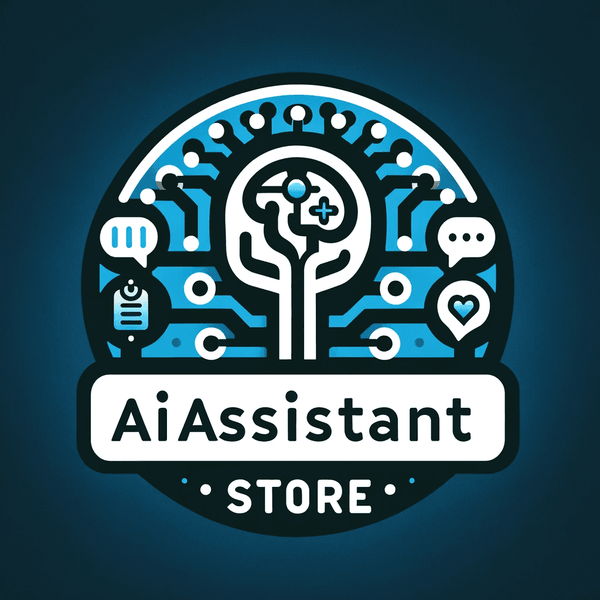Okay, cards on the table: seems like everyone - from recent grads to midlife career switchers - is tacking “AI” onto their resumes lately. But what really moves the needle? Like, what gets a hiring manager to pause mid-scroll and think, “Alright, this one’s got substance”?
Because let’s be honest - throwing buzzwords around is easy. Demonstrating real, usable skills in AI? That’s a different beast.
If you're aiming for a role in tech (or even just trying not to get steamrolled by the machine-learning wave), knowing which AI skills to highlight could be the make-or-break factor. So yeah, let's actually dig in. 👇
Articles you may like to read after this one:
🔗 Top 10 AI tools for resume building
Land your dream job with these AI resume tools.
🔗 Monica AI: AI assistant for productivity & creativity
Boost your daily tasks using this smart AI assistant.
🔗 Artificial intelligence career paths: The best jobs in AI
Explore top AI careers and how to break into them.
What Separates Useful AI Skills from... the Rest?
Short answer? Context. But also:
-
Application in reality: Can the skill do something practical? Solve something non-theoretical?
-
Cross-role flexibility: Plays nicely whether you're in product, design, or analytics.
-
Scalability & tools: Are you using frameworks (like TensorFlow, APIs, etc.) that grow with projects?
-
Receipts: Got work samples? Projects? Even small demos speak volumes.
Don’t just say you “do AI.” Explain what you did with it.
Resume-Ready AI Skills That Actually Matter 💼
Here’s a rundown - not exhaustive, but definitely solid - for resume fodder that gets attention:
-
Machine Learning (ML)
-
Natural Language Processing (NLP)
-
Prompt Engineering (yes, it's a thing now - deal with it)
-
Model fine-tuning (especially with Hugging Face, PyTorch, etc.)
-
Computer Vision
-
Deep Learning / Neural Networks
-
Data preprocessing & feature selection
-
Conversational AI / Chatbots
-
Reinforcement Learning (if you're going for senior or research-y roles)
-
MLOps / Model deployment workflows
Oh, and if you're layering any of these with GCP, AWS, or Azure? That’s golden.
AI Skills Snapshot: A Quick Table 🔍
| AI Skill | Who Uses It? | Difficulty Range | Why It Pops on Resumes 💡 |
|---|---|---|---|
| Machine Learning | Analysts, Data Scientists | Intermediate+ | Flexible, broadly useful |
| NLP | Writers, Marketers, Support | All Levels | Language = universal |
| Prompt Engineering | Devs, Designers | Entry-Level+ | Super new, super relevant |
| Model Deployment (MLOps) | Engineers, Ops Teams | Advanced | Bridges dev to production |
| Computer Vision | Retail, Healthcare, Imaging | Intermediate | Solves visible-world tasks |
| Transformers / Hugging Face | AI Engineers, Researchers | Advanced | Pretrained = faster delivery |
Prompt Engineering: The Underdog Skill That Slaps 🧠
Here’s one that gets slept on: how well you communicate with AI.
It’s no joke - prompt engineering isn’t just ChatGPT tricks. It's about:
-
Structuring layered or iterative prompts
-
Testing variations for consistent output
-
Integrating tools like LangChain or Flowise
Side projects count. Even random experiments can show you know how to steer models, not just use them.
Highlighting AI Projects That Hit Hard 🛠️
You want to stand out? Show your work.
-
Link your GitHub or portfolio (even if it’s ugly - just show something)
-
Name-drop datasets or data types you’ve wrangled
-
Include any metrics: accuracy, speedups, cost reductions
-
Share the mess: weird bugs, project pivots - people like stories
Here’s a tip: even basic coursework can be spun into “applied experience” if the framing’s right.
Don’t Sleep on These Soft Skills ✨
Not everything is Python and GPUs.
-
Curiosity: AI moves fast - are you keeping pace?
-
Critical thinking: Models mess up - do you notice how?
-
Communication: Can you explain this stuff without sounding like a tech goblin?
-
Collaboration: Rarely solo work - you’ll be in teams, often cross-disciplinary
Honestly, the combo of hard skill + soft context is what separates practitioners from resume-warriors.
Certifications That Aren’t Useless 🎓
They’re not required... but they do help cut through noise:
-
DeepLearning.AI Specializations (Coursera)
-
Google Cloud Professional AI Engineer
-
Fast.ai Practical Deep Learning
-
DataCamp or edX structured AI tracks
-
Prompt Engineering on LearnPrompting.org
Bonus: if you pair these with real projects - even mini ones - you’re ahead of 90% of applicants.
Resume Writing Tips for AI Skills 🧾
Don’t be dry. Be clear. Be real.
-
Lead with verbs: “Built,” “Optimized,” “Deployed”
-
Use metrics: “Reduced inference time by 40%”
-
Create a section titled "AI & Data Science"
-
Trim the jargon unless the job posting screams for it
-
Don’t go full wizard-mode. “AI sorcerer” = auto-skip.
What You Actually Need 🚀
Yes, put AI on your resume - but only if you earned it.
Highlight practical use, emphasize context, and stack technical work with soft skill narrative. Doesn’t matter if you’re an engineer or a digital marketer - AI is part of your toolkit now.
So flex it. Just don’t get weird with titles. 😅

